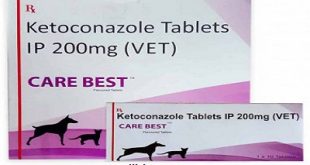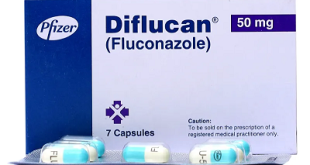What is Luliconazole? Luliconazole is a novel antifungal agent that belongs to the family imidazole. Luliconazole is used to treat broad-spectrum fungal infections. Luliconazole is beneficial for the treatment of skin infections caused by dermatophytes. Due to the unique molecular structure of Luliconazole, it can penetrate the nail bed and attain fungicidal concentrations there. So, Luliconazole can also treat onychomycosis …
Read More »Antifungal Drugs
Ketoconazole – Uses and Dose
Background Ketoconazole is an imidazole antifungal agent used in the prevention and treatment of a variety of fungal infections. It functions by preventing the synthesis of ergosterol, the fungal equivalent of cholesterol, thereby increasing membrane fluidity and preventing growth of the fungus. Ketoconazole was first approved in an oral formulation for systemic use by the FDA in 1981.9 At this …
Read More »Fluconazole – Antifungal Drug
Background Fluconazole, commonly known as Diflucan, is an antifungal drug used for the treatment of both systemic and superficial fungal infections in a variety of tissues. It was initially approved by the FDA in 1990. This drug is an azole antifungal, in the same drug family as ketoconazole and itraconazole. Fluconazole has many advantages over the other antifungal drugs including …
Read More » PillsLog.com | Instantly Drugs information Instantly find your pills from our A to Z list Medicines and Prescription Drug information for consumers and medical health professionals.
PillsLog.com | Instantly Drugs information Instantly find your pills from our A to Z list Medicines and Prescription Drug information for consumers and medical health professionals.

